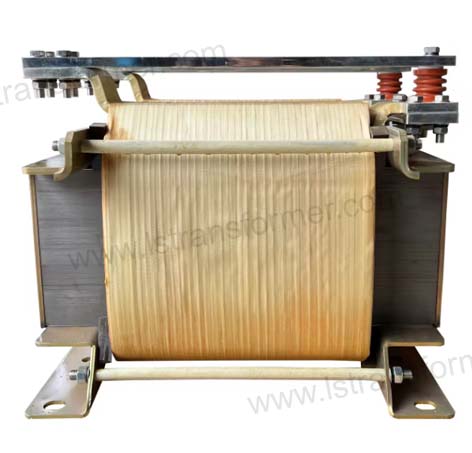Air Gap in Reactor Iron Core
Reactor iron core is an essential component in reactors that helps to provide inductive reactance. An air gap in the reactor iron core can significantly affect its performance. An air gap refers to the space between two magnetic cores that interrupts the magnetic field.
The presence of an air gap in the reactor iron core will cause the magnetic field to leak, which can lead to significant power loss. It also increases the current density, which can cause the temperature to rise and degrade the insulation of the windings. The air gap can also cause noise and vibration, which can affect the performance of the reactor.
To prevent an air gap in the reactor iron core, it is essential to ensure that the magnetic cores are properly aligned and there are no foreign materials or particles that can affect the magnetic field. The air gap should also be minimized, and the cores should be tightly bound together.
If an air gap is detected in the reactor iron core, it can be repaired by removing the faulty component and replacing it with a new one. The replacement component should be carefully inspected to ensure it has no defects that can cause an air gap in the future. Regular maintenance and inspection can help prevent the occurrence of air gaps and other faults in the reactor iron core.
In conclusion, the air gap in the reactor iron core can significantly affect the performance of the reactor. It can cause power loss, increase current density, and affect the insulation and overall performance of the reactor. Regular maintenance and inspection are essential to prevent air gaps and other faults in the reactor iron core, which can affect the efficiency and reliability of the reactor.
In addition to the core material and winding, the air gap in the core is also an important factor affecting the performance of reactors. The air gap in the reactor core is usually caused by manufacturing defects or during the installation process. The size of the air gap can affect the inductance and the magnetic field distribution in the core.
In the case of a small air gap, the magnetic field in the core is uniform and the inductance value of the reactor is relatively stable. However, when the air gap increases, the magnetic field distribution becomes uneven, leading to an increase in the inductance value of the reactor. The increase in inductance value can cause the reactor to draw more current, leading to overheating and reduced efficiency.
To avoid problems caused by air gaps, it is important to ensure that the reactor is properly installed and the core is manufactured with high precision. The use of high-quality materials and advanced manufacturing processes can help minimize the occurrence of air gaps and ensure the optimal performance and lifespan of the reactor.
LuShan, est. 1975, is a Chinese professional manufacturer specializing in power transformers and reactors for 48 years. Leading products are single-phase transformer, three-phase transformers, DC inductors, AC reactors, filtering reactor, expoxy resin high-voltage transformer and intermediate, high-frequency products. Our transformers and reactors are widely used in 10 application areas: rapid transit, construction machinery, renewable energy, intelligent manufacturing, medical equipment, coal mine explosion prevention , excitation system, vacuum sintering, central air conditioning.
Know more about power transformer :https://www.lstransformer.com/Transformers

 EN
EN
 FR
FR DE
DE ES
ES

